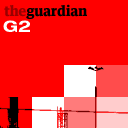|
|
. |
 |
 he Guardian G2 Poker Column he Guardian G2 Poker Column |
|
| |
|
 |
| |
 |
| |
| Victoria
Coren |
| Monday June 11,
2007 |
| |
 |
| |
|
|
|
They say that you can bet with a bad hand but you cannot call with
one. But sometimes, in a tournament, it is the only logical play.
When
my brother Giles was on the final table at the Sportsman tournament, he
suffered an unlucky loss that left him with only two big blinds in his stack.
On the break, I warned him that he could no longer afford to pass his big blind
- the only advice I gave him all night. |
|
|
Immediately afterwards, he was in the big
blind. All passed round to the small blind, who raised him all-in. Giles looked
down at a miserable 7-3 offsuit. He looked back at me in grumpy disbelief, but
called.
His big blind was already in the pot: his opponent had put in
two more big blinds. There were also running antes. It only cost Giles one big
blind to call (because that's all he had), so he was getting over 3/1 his
money. If his opponent didn't have a pair, nor either of Giles's two cards,
then Giles would be at worst 2/1 to win the pot. Mathematically, this is a
must-call.
Recreational players don't always want to bother learning
the fiddly statistics of poker hands. To keep it simple: when you have a short
stack, remember that you need to play yourself back into contention. Look out
for situations where (although your hand is weak, and you're not expecting to
win the pot), if you do win, it will be a large return for your small chips.
This may not be because you have only two big blinds; you could have five big
blinds but several people have already called a raise to increase the value.
In this case, my brother hit a pair of sevens on the flop, and went on
to win the tournament.
Your can read more byAnthony Holden at his
website www.biggerdeal.com |
|
|
| |
|
|
 |
| |
|
. |

Play Online
Poker
|



